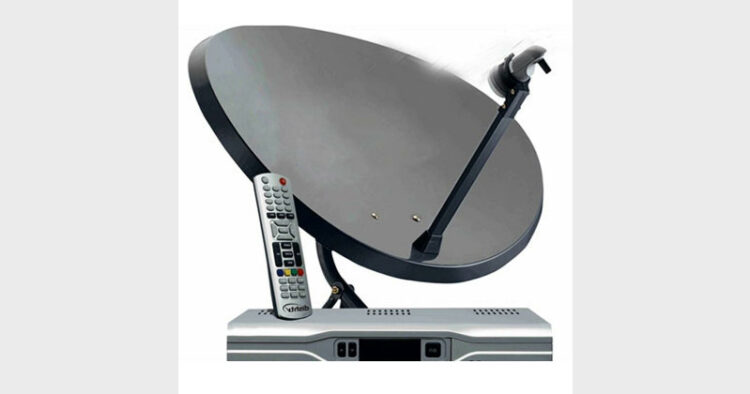
With more than 3000 films produced in a year, India is the largest film producer globally with an industry-led by the private sector. To fulfil the commitment to support the films sector, the Union Cabinet, chaired by Prime Minister Modi, has approved to merge four of its film media units, namely Films Division, Directorate of Film. Festivals, National Film Archives of India, and Children’s Film Society, India with the National Film Development Corporation (NFDC) Ltd. by expanding the Memorandum of Articles of Association of NFDC will then carry out all the activities hitherto performed by them. The merger of Film Media Units under one corporation will lead to convergence of activities and resources and better coordination, thereby ensuring synergy and efficiency in achieving the mandate of each media unit.
Films Division, a subordinate office of M/o I&B, was established in 1948 to produce documentaries and news magazines for publicity of Government programmes and cinematic record of Indian history.
Children’s Film Society, India, an autonomous organisation, was founded in 1955 under the Societies Act to provide children and young people value-based entertainment through the medium of films.
National Film Archives of India, a subordinate office of M/o I&B, was established as a media unit in 1964 with the primary objective of acquiring and preserving Indian cinematic heritage.
Directorate of Film Festivals, as an attached office of M/o I&B, was set up in 1973 to promote Indian films and cultural exchange.
NFDC is a Central Public Sector Undertaking, incorporated in 1975 with the primary object of planning and promoting an organised, efficient and integrated development of the Indian Film Industry.
The Union Cabinet which approved the merger of these Media Units in its meeting also approved the appointment of a Transaction Advisor and Legal Advisor to advise on the transfer of assets and employees and to oversee all aspects of operationalisation of the merger.
While undertaking this exercise of convergence, the employees of all the concerned Media Units will be fully taken care, and no employee will be retrenched.
The umbrella organisation, NFDC, consequent upon the merger of Film Media Units will be uniquely placed about promotion, production & preservation of filmic content – all under one management. The vision of the new entity will be to ensure balanced and focused development of Indian cinema in all its genres-feature films, including films /content for the OTT platforms, children’s content, animation, short films and documentaries.
The merger of Film Media Units under a single corporation will lead to synergy amongst the various activities with better and efficient utilisation of misting infrastructure and human resources. This will lead to a reduction in duplication of activities and direct savings to the exchequer.
The Union Cabinet has also approved the proposal for revision of the guidelines for obtaining the license for providing Direct-To-Home (DTH) broadcasting service in India. The salient features of the decision are:
- License for the DTH will be issued for 20 years in place of the current 10 years. Further the period of License may be renewed by 10 years at a time.
- License fee has been revised from 10% of GR to 8% of AGR. AGR will be calculated by deduction of GST from GR.
- License Fee will be collected every quarter instead of presently annual basis.
- DTH operators shall be permitted to operate .to a maximum of 5% of its total channel carrying capacity as allowed platform channels. A one-time non-refundable registration fee of Rs.10,000 per PS channel shall be charged from a DTH operator.
- Sharing of Infrastructure between DTH operators. DTH operators, willing to share DTH platform and transport stream of TV channels, on a voluntary basis, will be allowed. Distributors of TV channels will be permitted to share the standard hardware for their Subscriber Management System (SMS) and Conditional Access System (CAS) applications.
- The cap of 49% FDl in the existing DTH guidelines will be aligned with the extant Government (DPIIT’s) policy on FDl as amended from time to time.
- The decision will come into effect as per revised DTH guidelines are issued by the Ministry of Information and Broadcasting.
The proposed reduction is intended to align the license fee regime applicable to the Telecom sector and be prospectively applied. The difference may also enable DTH service providers to invest for more coverage leading to increased operations and higher growth and thereby enhanced and regular payment of License Fee by them. The registration fee for Platform Services is likely to bring a revenue of approximately Rs. 12 Lakhs. Sharing of infrastructure by the DTH operators may bring in more efficient use of scarce satellite resources and reduce the costs borne by the consumers. Adoption of the extant FDI policy will bring in more foreign investment into the country.
The DTH is operable on the pan-India basis. DTH sector is a highly employment-intensive sector. It directly employs DTH operators and those in the call centres besides indirectly using a sizeable number of installers at the grass-root level.
The amended DTH guidelines, with more extended license period and clarity on renewals, relaxed FDI limits, etc., will ensure a fair degree of stability and new investments in the DTH sector along with employment opportunities.














Comments